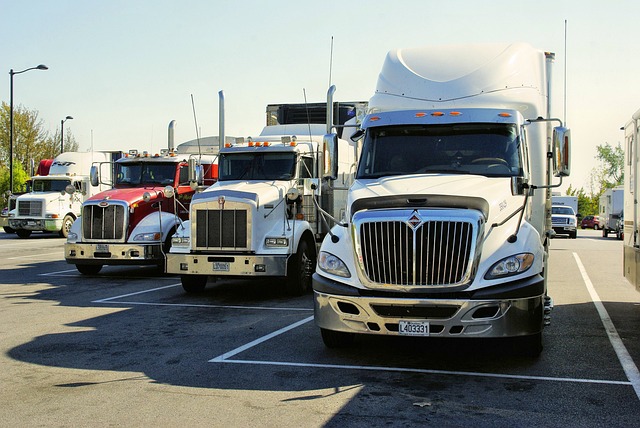For first-time trucking operators, cargo liability coverage is crucial for protecting against financial losses from damaged or lost cargo during transport. This insurance aspect covers physical damage, theft, and certain types of loss but may exclude perishable goods or cargo susceptible to extreme weather. Novices should thoroughly review policy documents, consult with insurance brokers, and tailor policies to their freight to ensure comprehensive protection. By focusing on this coverage, leveraging fleet discount programs, comparing quotes, and understanding route-specific requirements, new operators can secure cost-effective, comprehensive cargo liability insurance while navigating regulatory compliance.
First-time trucking operators face a unique challenge: balancing financial stability with initial investments. As they venture into this industry, understanding essential components like cargo liability coverage is paramount. This article guides new operators through affordable options, from navigating cargo liability coverage essentials to exploring cost-effective insurance and budget-friendly overhead reduction tips. Additionally, we’ll delve into regulatory requirements, ensuring compliance while staying within financial limits.
Understanding Cargo Liability Coverage: Essentials for First-Time Truckers

For first-time trucking operators, understanding cargo liability coverage is non-negotiable. This essential aspect of insurance protects against financial losses incurred due to damage or loss of cargo during transport. As a novice trucker, it’s crucial to comprehend the scope and limitations of this coverage to ensure adequate protection for your business and clients. Familiarize yourself with terms like “open” and “closed” liability, which refer to the circumstances under which claims are covered.
Knowing what’s covered and what’s not is vital. Cargo liability coverage typically includes protection against physical damage, theft, and certain types of loss. However, it may exclude perishable goods or cargo prone to specific risks like extreme weather conditions. First-time operators should carefully review their policy documents and consult with insurance brokers to tailor a policy that aligns with the type of freight they carry, ensuring peace of mind on the road.
Exploring Cost-Effective Insurance Options for New Operators

For first-time trucking operators, navigating the complexities of insurance can be daunting. However, exploring cost-effective options is crucial to keeping operational costs low without compromising on essential protections. One key area to focus on is cargo liability coverage. This type of insurance shields operators from financial losses in the event of cargo damage or loss during transit, a significant concern for any trucking business.
Many insurance providers offer specialized policies tailored for new operators, often with flexible payment plans and competitive rates. By comparing quotes from multiple carriers and considering options like fleet discount programs, new operators can secure adequate cargo liability coverage without breaking the bank. Additionally, understanding the specific requirements of different cargo types and routes can help in selecting the right insurance policy, ensuring both cost efficiency and comprehensive protection.
Budget-Friendly Tips to Reduce Overhead Expenses in Trucking

Starting your trucking business on a tight budget? Smart financial planning can help reduce overhead expenses and keep costs down. One key area to focus on is insurance, including cargo liability coverage. While it’s essential for legal protection, shopping around for the best rates and considering higher deductibles can significantly impact overall spending.
Additionally, leveraging technology can offer substantial savings. GPS tracking systems optimize routes, reducing fuel consumption and driver hours. Implementing digital logging solutions streamlines paperwork, cutting down on administrative costs. By adopting these budget-friendly tips, first-time trucking operators can navigate the industry with greater financial stability and control over their expenses.
Navigating Regulatory Requirements While Staying Within Financial Limits

Navigating the regulatory landscape is a significant challenge for first-time trucking operators aiming to keep costs low. Understanding and adhering to safety standards, weight restrictions, and licensing requirements can be complex and costly. However, prioritizing compliance is non-negotiable, as violations often come with substantial penalties. To balance financial constraints with legal obligations, operators should start by thoroughly researching state and federal regulations specific to their operations.
Obtaining adequate cargo liability coverage is a crucial step in managing risks while keeping expenses manageable. This coverage protects against potential losses or damages related to the goods being transported, offering peace of mind and ensuring financial stability. By carefully comparing policies and shopping around for the best rates, operators can find affordable options that meet their specific needs without breaking the bank.
For first-time trucking operators, navigating the complex world of logistics can be challenging. However, with a thorough understanding of essential components like cargo liability coverage and cost-effective insurance options, along with budget-friendly overhead reduction tips and knowledge of regulatory requirements, it’s possible to enter this industry successfully while staying within financial limits. By following these guidelines, new operators can focus on growing their businesses without being weighed down by excessive expenses.
